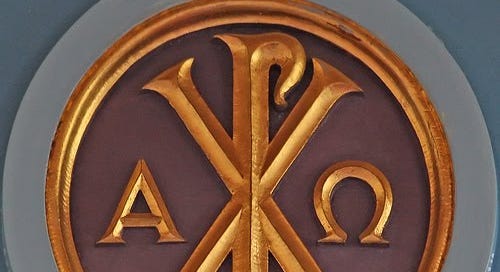Our Central Identity
Reflecting on the Seventh Sunday of Easter: Three Days after Sunday (Year A)
Scripture
Psalter: Psalm 99
Old Testament: 1 Kings 8:54-65
Gospel: John 3:31-36
___
Prayer
Creator of the universe, you made the world in beauty, and restore all things in glory through the victory of Jesus Christ. We pray that, wherever your image is still disfigured by poverty, sickness, selfishness, war and greed, the new creation in Jesus Christ may appea…
Keep reading with a 7-day free trial
Subscribe to Faith Seeking Understanding to keep reading this post and get 7 days of free access to the full post archives.




